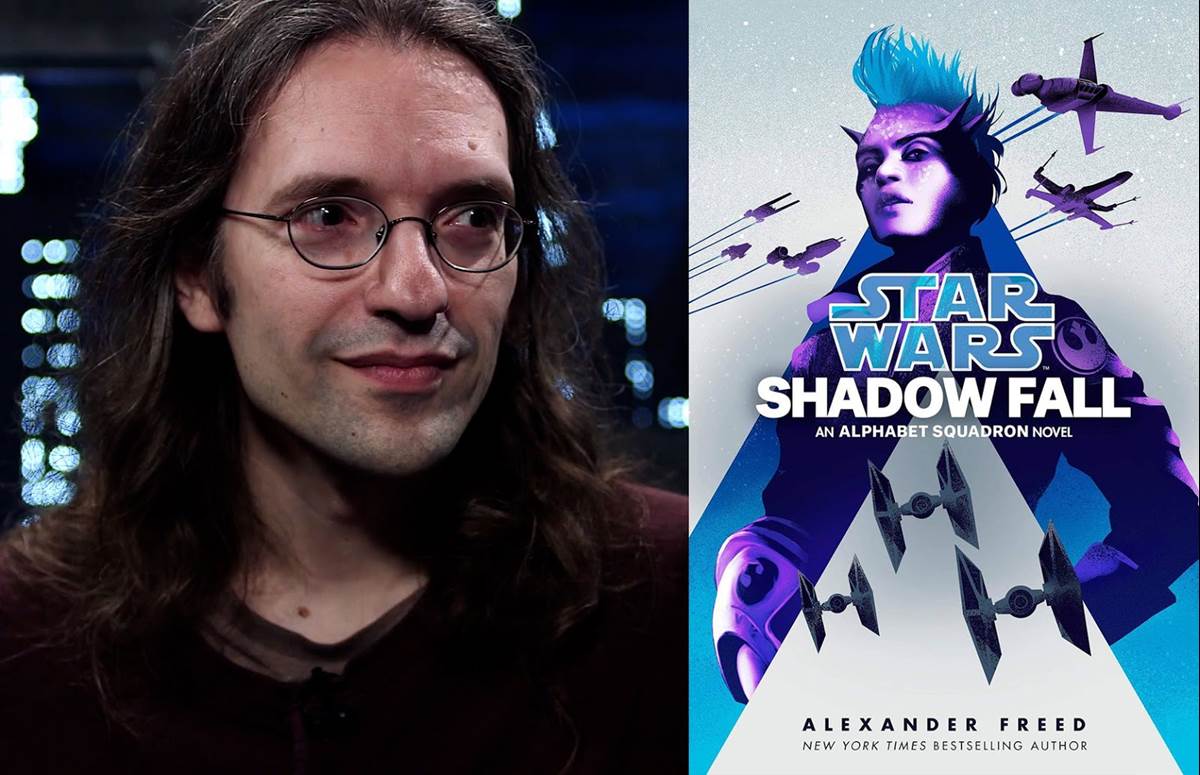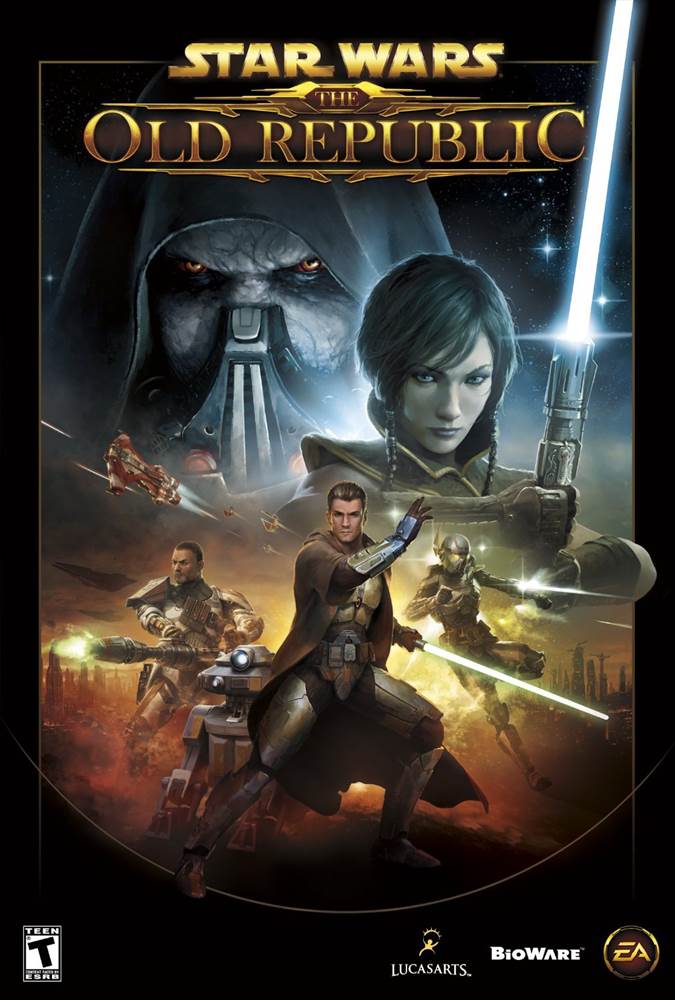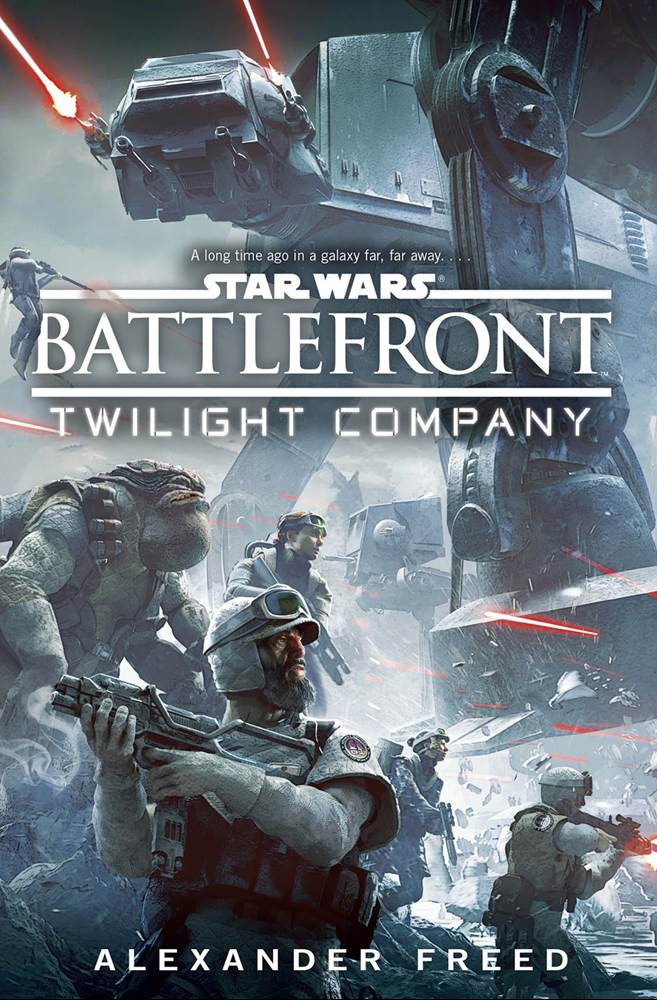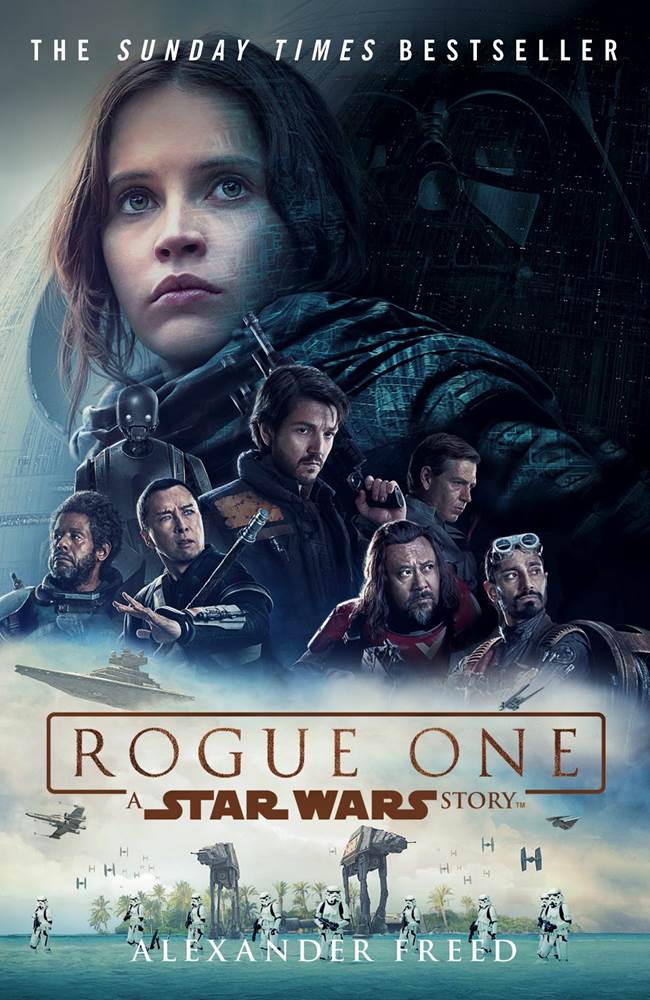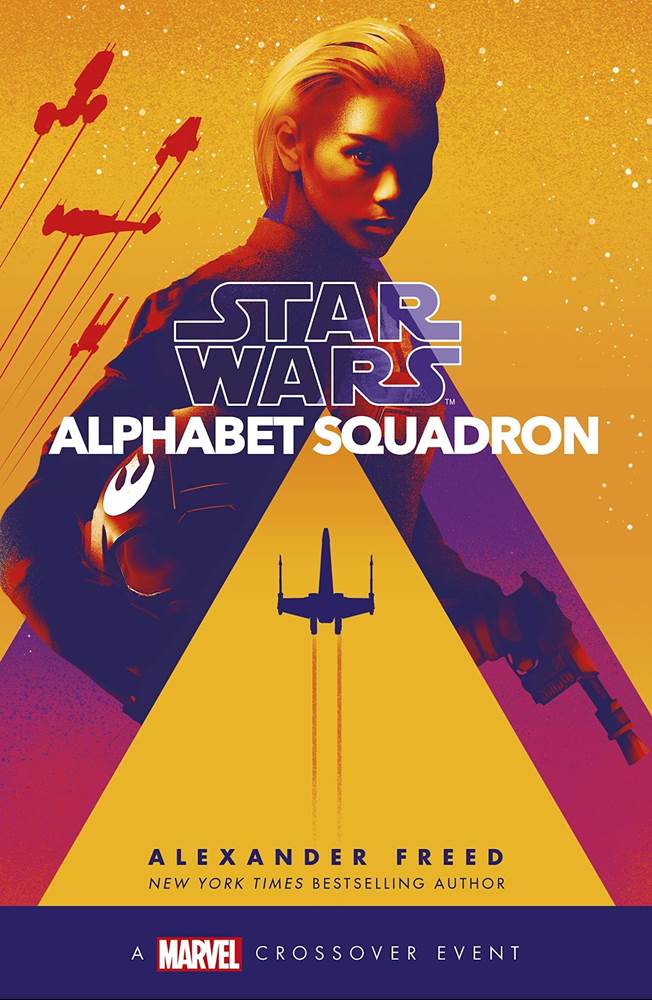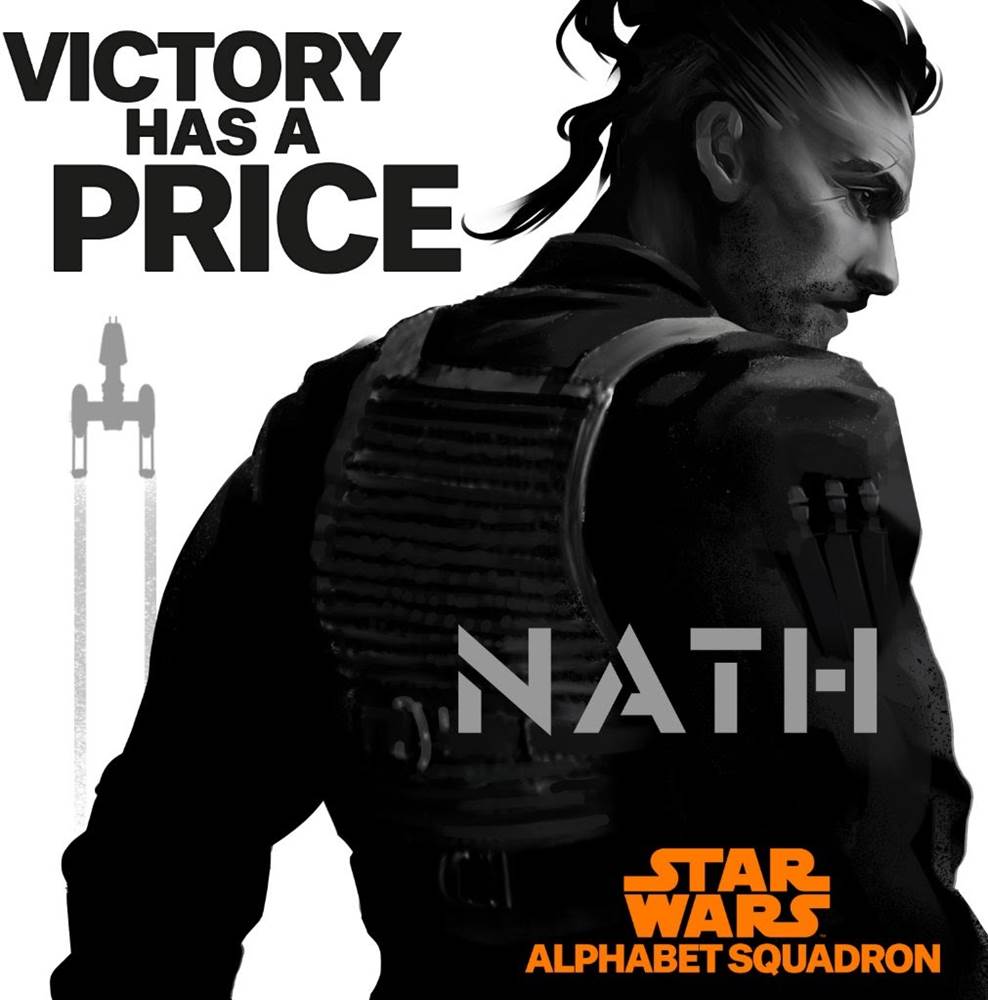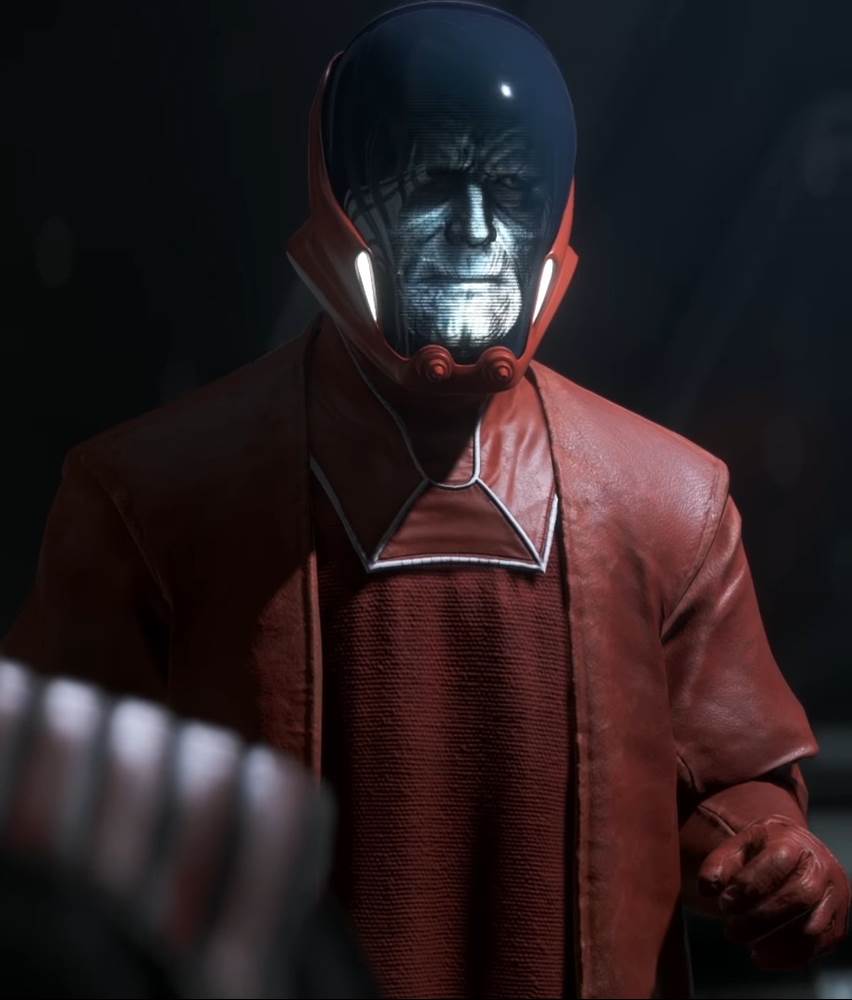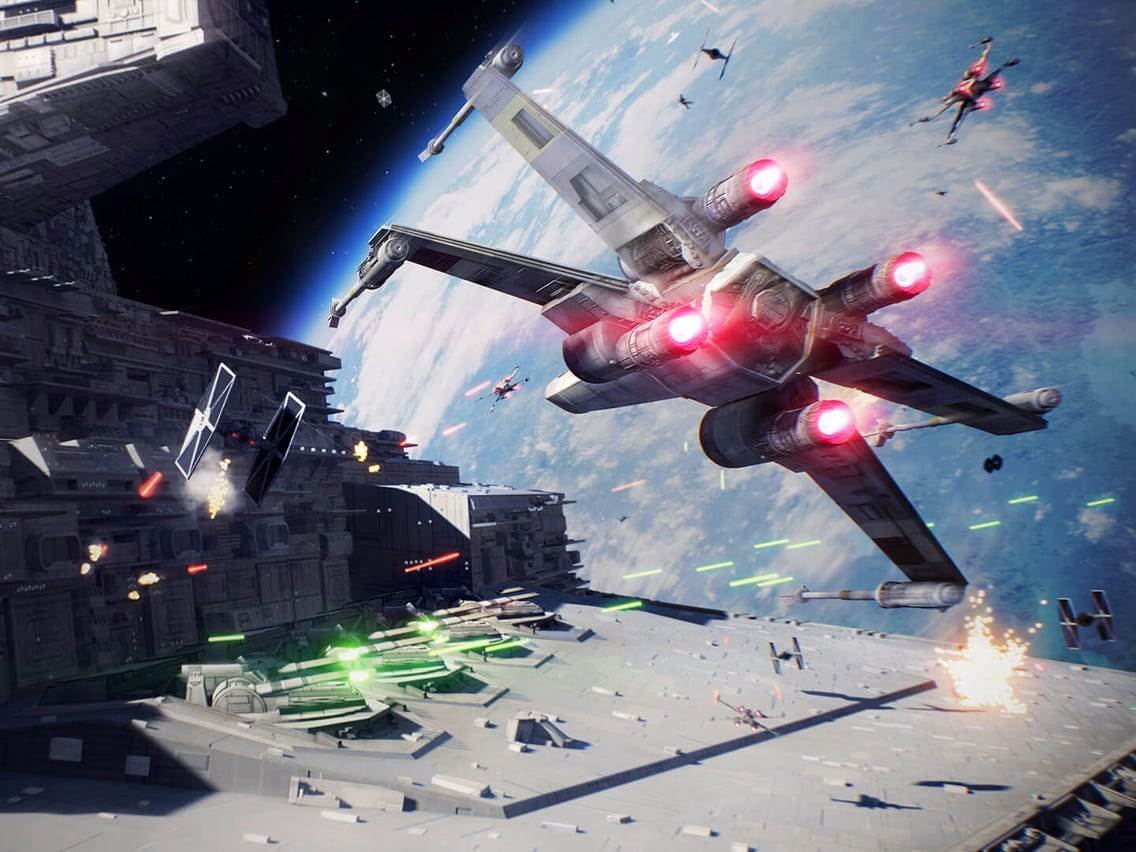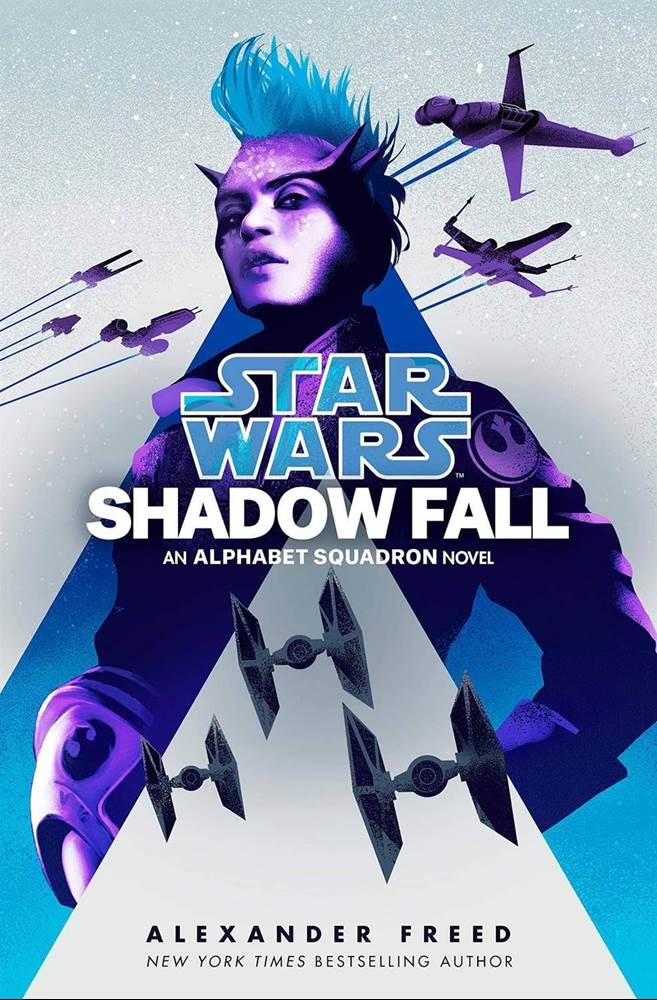Author Alexander Freed has been contributing to A Galaxy Far, Far Away for almost fifteen years, ever since he was hired as a writer for BioWare’s massively multiplayer online game Star Wars: The Old Republic. Since then he has penned numerous additional Star Wars video games, comic books, and novels including Star Wars: Battlefront – Twilight Company and the novelization of Rogue One: A Star Wars Story. This week Del Rey partnered with Lucasfilm Publishing to release Star Wars: Shadow Fall, the highly anticipated follow-up (and second part of a planned trilogy) to last year’s excellent Star Wars: Alphabet Squadron.
I had the pleasure of speaking with Alexander Freed over the phone to discuss Star Wars: Shadow Fall – An Alphabet Squadron Novel and his career leading up to it for Laughing Place’s weekly Star Wars podcast Who’s the Bossk? and I’m pleased to present an ever-so-slightly abridged transcribed version of that in-depth conversation here on LaughingPlace.com.
Mike Celestino, Laughing Place: What was your relationship with Star Wars growing up? I’m guessing you were a fan.
Alexander Freed: Yeah, I grew up with the Original Trilogy, most of it on VHS tape, watching it on TV at home over and over after school. It was a huge part of my childhood. I never had the action figures, I never had the Marvel comics or any of that stuff, but I deeply treasured those films. I never completely fell into the world of all the [Expanded Universe] materials until significantly later, but those first three movies I must have seen hundreds of times as a kid.
LP: And you started actually contributing to Star Wars as part of your career at Bioware, is that correct?
Freed: Yes, I came onboard at Bioware. They had a writing job open; I joined up not really knowing for certain what the project was, and [it] turned out to be Star Wars: The Old Republic. That was when I first really started reexamining that universe. I had seen the prequels, I had read bits and pieces here and there, but again I hadn’t gone deep into that universe until I started working in it professionally, which gave me a different perspective, obviously, than just the joy and wonder that I had as a younger kid.
LP: What is the process of writing for an MMORPG like The Old Republic?
Freed: We had about a dozen writers on the team. It started in 2006, and it didn’t release until 2011, so it was a massive, lengthy project. We had a lead writer who helped dole stuff out and figure out, ‘What areas is everyone going to be concentrating on?’ I owned one of the class stories– the Imperial Agent– and did all sorts of little miscellaneous side quests and flashpoints, and so on and so forth. The Bioware approach for game writing tends to be relatively story-first, so we would put together documents going, ‘This is going to be the flow of all of this material,’ hand it over to level designers [and] system designers who would take a look at it and make sure it [was] going to work. It comes back to us and then we actually start writing at the same time that a lot of the material is being built.
LP: Tell me about the transition from writing video games to writing the Star Wars: The Old Republic comic book for Dark Horse. What was that experience like?
Freed: I had always been a fan of comics as a medium, so when the opportunity came up– there had been some Old Republic digital comics done before then, and we wanted to do a new series [hitting] some particular story points– the option came up to me to do it, and being a comics fan I was very excited. That was my first professional comics writing experience, and there’s a learning curve there. It’s a different medium; it requires different skills. In that case, they eventually got print versions and a collected edition, but we were doing them initially as seven-page digital comics. That’s a lot of work you have to do in a very small amount of space, to give a satisfying chapter of story in seven comics pages. I ended up going and looking at a lot of older, shorter comic chapters as a point of reference to figure out how to tell a story in that way.
LP: After that, you were starting to become a trusted writer in the Star Wars universe. You did a few more video games, some short stories for StarWars.com, and then you stepped up to write your debut novel Star Wars: Battlefront – Twilight Company. How would you describe that book to fans who haven’t picked it up yet?
Freed: Twilight Company [is] a tie-in to the [2015] Battlefront video game, which did not have a single-player story mode, so it was more of an attempt to capture the spirit of boots-on-the-ground combat in the Star Wars universe. It’s very much a story of, ‘Here are the average Rebels who are out there fighting– that guy you see in the deep background on Hoth who gets shot by a walker.’ It’s a story about people like him or her– these infantry troops who are not special forces. They’re going from planet to planet; they’re trying to figure out how they are contributing to this war as a whole, but they’re not really heroes. Our focal point is a sergeant named Hazram Namir, who grew up in a series of questionable causes before falling in with the Rebels. It’s a story about him and his squad and his gradual journey to understanding more about the Rebellion as the war progresses.
LP: It seems to me like from that point forward, your work has steered toward the more military side of Star Wars. Would you say that’s where your interests lie?
Freed: I wouldn’t say it’s where my interests lie, precisely. I would say that my interests lie in stories about what life is like for an unspectacular person in the Star Wars universe. I like the view from the ground, and part of that is honestly just because we have so many genuinely great stories of the very top level of heroism and drama in the Star Wars universe, and it wouldn’t be Star Wars without that material, but it is so thoroughly explored that it’s always difficult to find new stories in that particular arena, particularly when you’re working in the established time periods. If you try to create a story about a big, grand hero that evokes some of the same aspects of, say, Luke Skywalker’s journey, then you’re competing directly with Luke Skywalker in a sense, and you’re never going to win that battle.
I tend to come at it from the angle of, ‘These great heroes, these big stories, these are the pillars that support the entire Star Wars universe, so what has to exist around them? What are the natural extrapolations and consequences of those core characters and events? Let’s see what compelling stories come out of those.’ All of the films have been a triumph of world-building. There’s so much implied in every little background element of every scene– and that doesn’t mean that you should approach it by explaining all the details and then not adding anything more. What you want to do is continue expanding from that point. [Star Wars] is a wonderful toybox to work with.
LP: In 2016 you wrote the novelization for Rogue One: A Star Wars Story. What specific challenges did you encounter in adapting a screenplay into novel form?
Freed: I had never done anything like that before. The challenge that I set for myself was how to write this book in such a way that it is worth existing, because I wasn’t going to be able to make a better Rogue One than the film. The film was made to be a film, and you can’t translate something into another format and do the stuff that the original did as well. I’m never going to capture the visceral nature of combat; I’m never going to get every nuance of every expression on an actor’s face. You can’t do that, so the book needs to bring something that only a book can bring into it. I took a number of angles, and part of it was, ‘Let’s really get inside these characters’ heads. Let’s see what they’re thinking.’ You can’t get that in a movie.
Some of it was just fleshing out scenes, getting additional background– stuff that wouldn’t have fit into a tautly-paced two-hour movie. And then some of it was just shoving in these chapters of supplementary material– sort of in-universe documents from the email files of the Death Star engineers and information from Rebel intelligence. You couldn’t do something like that in the film, but [they] hopefully evoked the documentary style of Rogue One.
LP: As we know, the structure of Rogue One underwent some major changes during its post-production stage and some highly publicized reshoots. How did that affect your process of writing the novel?
Freed: I can’t get into too much detail [on that], but I was certainly aware of what was going on, and it impacted my schedule a couple of times. [laughs] It made things more challenging, but in the end I had the proper, final script to work from. I didn’t have to rewrite the book three times, or anything like that.
LP: Last year the first novel in your Star Wars: Alphabet Squadron trilogy was released, and for that you had the opportunity to create a new cast of original characters. What was the inspiration for the specific makeup of the Alphabet Squadron team– both the heroes themselves and the ships they pilot?
Freed: When I was approached about this project, there was a plan to [have it] be tied in to the TIE Fighter comics on the Marvel side and also with the upcoming [Star Wars: Squadrons] video game, so there was a big sense of what this project was going to be. Lucasfilm and Del Rey gave me this one-page document of, ‘This is all the stuff that’s going on. We want a post-Endor pilot story, and we want the gimmick to be five different kinds of ships, and we want them to be fighting this elite TIE Fighter enemy.’ And that was kind of it; that was all I had to work with, but I knew that the five different ship types was the big hurdle to figure out. ‘[How] are these characters’ personalities going to match with these ships and [how are they] going to sustain an entire trilogy?’
I had specific goals to start that with as well as challenges to overcome, and some of it was relatively straightforward, like our X-Wing pilot was going to be our protagonist. That was never really a question in my mind. [X-Wings] are just too core to the Star Wars mythology to not be the center of attention. In other cases, it was more of a ‘Well, B-Wings are ridiculous and aggressive. What kind of character is going to be in there?’ That felt like a natural fit for Chass [na Chadic], who is our born Rebel– our very aggressive, easily offended, and often brutal Theelin character.
Nath Tensent, our pirate-y character, he didn’t have to be in a Y-Wing, but sticking him in a Y-Wing gave him some additional texture to his personality. A Y-Wing is not the obvious choice for a cynical old pirate, but it gave me something to do with, ‘How does he look at how he survives all of these years? How does he look at his droid? Having him be the loner would’ve been very different, but by sticking him with T5, his rattly old astromech droid, it suddenly makes him a slightly warmer personality.
LP: You mentioned the story’s setting being post-Endor. What do you think it is about the period after the events of Return of the Jedi that has made such fertile ground for a lot of recent Star Wars content?
Freed: Part of it is simply because it hasn’t been overly developed before now. The jump between that era and the Sequel Trilogy is pretty substantial, and the question of what happens next [after] the Original Trilogy– that’s still not totally answered. There’s a lot of room to go with that question, so it’s an exciting bit of turf to work in. For me, it also opens up a lot of interesting questions that are related to the key themes of Star Wars, but haven’t necessarily been overly explored before. The idea of a Rebellion going from a bunch of smugglers and Imperial defectors and Old Republic holdouts to a functioning government– that’s a really interesting concept. It has a lot of obvious challenges to it, and that leads to a lot of interesting potential stories.
Same thing on the Imperial side– what do all of these people do now that their Empire has fallen? Obviously some of them go off and found the First Order, but not every single person who ever worked for the Imperial government is going to do that. What are the structures and societal movements that they start? What does this all look like? It’s really interesting stuff, and it’s so deeply tied into Star Wars without having been done ten thousand times already. Obviously a lot of it was covered in Legends iterations, but that was one possible answer to those questions. Now we get to explore that a little more and go, ‘What if it happened differently? What other ideas can we play with?’
LP: You’ve done a lot to differentiate the villain in this series, Soran Keize, from other notable Imperial officers like Grand Admiral Thrawn. What sets that character apart to you and what was your strategy in making him stand out in that way?
Freed: I picture Soran as a soldier’s soldier. He is a man who does not have enormous loyalty to the Empire as a political entity, but who has an incredible loyalty to the people around him. He is not a cruel person; he is not a person who revels in violence, but he has also been fighting a war for the Empire long enough that those are tools in his arsenal. We’ve seen characters like Thrawn; we’ve also seen characters like Rae Sloane– the sort of ‘true believer’ characters. And [Soran is] not that, but he’s in there almost out of a very arguably misguided sense of duty to the people around him who are that mix of true believers and violent fanatics. Shadow Wing is a mass of different characters with different motivations, and Soran looks at them and goes, ‘Well, I gotta help these people somehow.’
LP: I have to also ask you about the Sentinel Droid AKA the Emperor’s Messenger, because I find myself haunted by the image of this presence, similar to the way Soran is haunted by it in the novel. Obviously this character was previously established in other media, but I would love to hear your take on its significance in this story.
Freed: I had a pretty positive reaction to [its introduction] in Greg Rucka’s Shattered Empire Marvel series. It’s a great image, it’s a great concept, and I think your description of it as sort of haunting the characters in the novels is about as good a description as I could give. It is representing all of the worst parts of the Empire and the Emperor himself, and no matter how much the Empire may change, the characters are forced to acknowledge that this is still where they’re coming from. This is part of their history and that’s going to influence everything that they do now and in the future.
LP: I don’t want to spoil too much about the new book Star Wars: Shadow Fall, but one of the things I really enjoyed about it was the exploration of a Force cult outside of the religion of the Jedi Order. Can you tell me a little bit about developing that particular subplot?
Freed: That was part of my top-level plans for the trilogy from the start. Not getting into serious spoilers, but we see Chass na Chadic getting to interact with this cult in book two. Part of that was very much character-driven– ‘This is something that I want to put this character through and see where she comes out of it.’ We get hints in book one that cults have been part of her background, but on a larger world-building level too it was exciting to me.
We have to assume the Empire was not enormously pro-religion as a concept. We’d seen some evidence of this in Rogue One and some other places. The Empire was not hands-off when it came to religious organizations. The idea that this whole aspect of culture had been suppressed for a couple of decades, and now suddenly the possibilities for religion are opening up, seemed to open up a lot of interesting story possibilities in that post-Endor period. You’re going to have people who are celebrating the return of Jedi ideals, but it’s also an opportunity for some less savory types to use some of those same tools and lean into some of those same desires. And thus cults are born.
LP: I wanted to ask you about writing action sequences, because I think you’ve done a really good job in capturing the pacing and excitement of the space battles we saw in the Original Trilogy.
Freed: Thank you. The space battles [are] one of the hardest things in this trilogy. Obviously I rewatched some of the classic film space battles before I jumped into all of this, to get myself in the mindset. What I realized was I was not going to be able to do them justice properly. They move fast; there’s so much going on. There’s so much sense of speed of these starfighters moving around and comrades being blown up. It’s very hard to replicate anything like that experience in prose, because prose moves slowly, even for a fast reader. You can also never stop the reader from slowing down, so I had to find an approach that was going to work for the books.
A lot of that was about [focusing on] what it feels like to be in that cockpit. What effects does it have on a human or alien body? What goes through a person’s mind? What are all the little toggles that they’re messing with and desperately trying to use to keep their ship together? [I’m also trying to find] interesting things to do that make sense to be happening at the same time as that blur of speed while still keeping the stakes constantly high– the sense of danger there and the sense of emotional stakes for the characters, as well.
LP: Lastly, you’ll have a third Alphabet Squadron novel coming out at some point, but I’m curious if you have any plans to create your own universes outside of your work in the Star Wars galaxy.
Freed: It’s something that I’ve done a lot of in other formats. I’ve done original world development on the video game side of my work; I’ve done some in comics as well. It is not something that I have yet gotten around to in the prose world. I sort of fell into the novels on the Star Wars side and have felt very lucky to do them. It is absolutely something that I would like to spend more time on down the line, as soon as that gap in my schedule shows up, I would love to be doing some original world-building on the novel side of things.
Star Wars: Shadow Fall – An Alphabet Squadron Novel is available now wherever books are sold. The full audio version of this interview is available as the latest episode of Laughing Place’s Star Wars podcast Who’s the Bossk?

